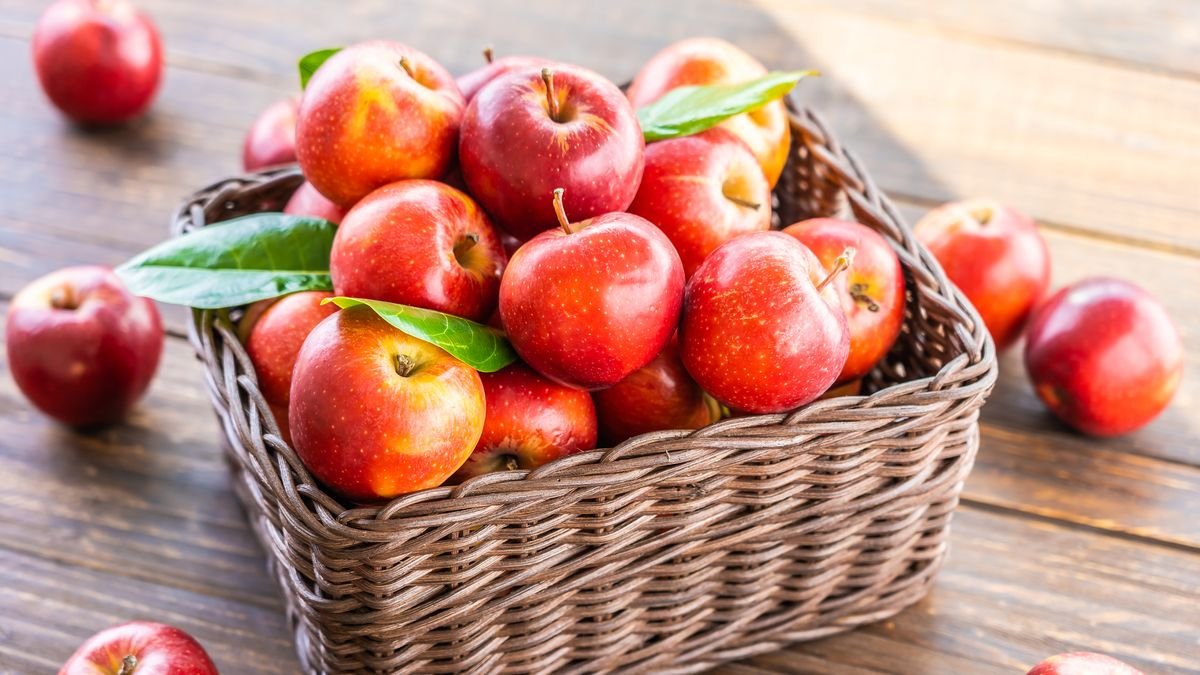What are the Health Benefits of Apples?
It’s apple picking season! Most people have heard of the saying “An apple a day keeps the doctor away!”, but where exactly does this statement come from? Apples are filled with important vitamins and minerals that help support our health and provide our bodies with the nutrients it needs to function properly. So, what are those nutrients and what do they do for our overall wellness?
One major component of apples is fiber! They contain both soluble and insoluble fiber, which have different roles in our body. Soluble fiber helps to mix the food you ingest and water together in the gastrointestinal tract, which helps to slow down digestion and increase nutrient absorption. It has also been shown to decrease the risk of developing cardiovascular disease, improve blood sugar levels, and decrease cholesterol. Contrarily, insoluble fiber helps to move food through the gastrointestinal tract and increases the speed of the food traveling through the stomach and intestines. In doing this, it adds bulk to stool and helps it to pass easier, preventing constipation. The combination of insoluble and soluble fiber helps to support gut health by creating a healthy balance of bacteria in the intestines and helps to support weight loss and weight maintenance. Something to be cautious of is that the majority of fiber in an apple is found in the skin, however, and when the skin is removed (like if you’re making an apple pie), the fiber content drastically decreases.
Apples also contain something called phytochemicals; phytochemicals are chemicals found in plant products and help protect our cells from harmful toxins, support our immune system, reduce inflammation, and so much more! One of the main phytochemicals in apples is called quercetin, which is both an anti-inflammatory and an antioxidant that protects against dangerous free radicals. By protecting the DNA in cells from damage from free radicals, it is also decreasing the risk of cancer, as DNA damage is a precursor to cancer. Furthermore, apples contain about 10% of the Daily Value (DV) for vitamin C, which is also a phytochemical. Similar to quercetin, vitamin C also helps to protect against damage from free radicals and has antioxidant properties. Vitamin C helps your immune system by stimulating an immune response in order to fight infection and even helps your skin by promoting collagen production.
Apples can be eaten in many different ways, so let’s talk about some healthy ways you can start incorporating them into your diet. One standard way many people like to enjoy apples is by pairing it with a nut butter. Nut butters are mainly composed of fat, but they also contain some protein which is always something to look for! Another way to eat them to fit more of a Fall theme is to add some to oatmeal in the morning; you can cook the apples on the stove before and add some cinnamon and honey to mimic the flavors of an apple crisp; the oatmeal is a great source of whole grains and fiber, which again is great for gastrointestinal health. Prime apple-picking season is between the months of September and early October. It's also a great way to spend time with family and friends and increase movement, so try it out this Fall season!

